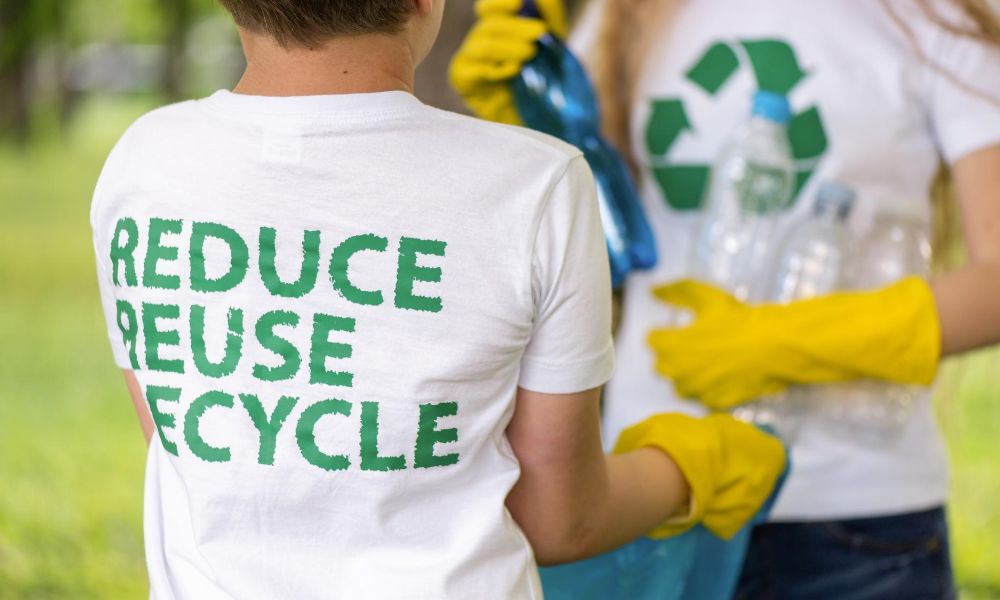In recent years, the term "greenwashing" has gained increasing attention as more and more companies have jumped on the sustainability bandwagon. Greenwashing refers to the practice of making exaggerated or misleading claims about the environmental benefits of a product or service, often to appeal to environmentally conscious consumers. This practice can be misleading, confusing, and ultimately counterproductive in the fight against climate change. But as a consumer, how can you make sustainable choices in everyday life? Here are some tips to help you navigate the complex world of sustainable living.
Educate Yourself
The first step to making sustainable choices is to educate yourself on the issues. Read up on climate change, the impact of human activity on the environment, and the sustainability initiatives of different companies. You'll be better equipped to make informed decisions and hold companies accountable for their claims by staying informed.
Reduce, Reuse, Recycle
The three Rs—reduce, reuse, and recycle—are the cornerstone of sustainable living. You can significantly reduce your environmental impact by reducing your consumption, reusing items when possible, and recycling what you can't reuse. For example, try bringing a reusable water bottle or coffee cup instead of using single-use plastic, bring your reusable bags when shopping, and compost food waste instead of throwing it in the trash.
Choose Sustainable Products
When shopping, choose products that are sustainably produced and packaged. Look for products made from recycled or renewable materials, such as bamboo, recycled plastic, or organic cotton. You can also look for certified products like the Forest Stewardship Council (FSC) or the Global Organic Textile Standard (GOTS), indicating that the product meets specific sustainability standards.
Support Sustainable Brands
Supporting sustainable brands is another way to make a positive impact. Look for brands that are transparent about their sustainability initiatives and are committed to reducing their environmental impact. Some brands even have programs that allow customers to recycle their products or packaging. By supporting these brands, you're sending a message that sustainability is essential to you.
Choose Low-Impact Transportation
Transportation significantly contributes to greenhouse gas emissions, so choosing low-impact transportation options is critical to reducing your environmental impact. Walking, biking, or taking public transportation instead of driving alone can significantly reduce your carbon footprint. If you must drive, consider carpooling or driving a fuel-efficient vehicle.
Eat a Plant-Based Diet
Animal agriculture significantly contributes to greenhouse gas emissions, so reducing your meat consumption or switching to a plant-based diet dramatically reduces your environmental impact. You don't have to go completely vegan or vegetarian to make a difference—just reducing your meat consumption can significantly impact you.
Reduce Energy Consumption
Reducing your energy consumption is another way to make a significant impact. Simple changes like turning off lights when you leave a room, using a programmable thermostat, and using energy-efficient appliances can all help reduce your energy consumption. You can also consider installing solar panels or using renewable energy sources to power your home.
Support Sustainable Agriculture
Supporting sustainable agriculture is another way to make a positive impact. Look for local farmers who use sustainable practices like crop rotation, cover cropping, and natural pest management. Buying from these farmers not only supports sustainable agriculture but also helps reduce the carbon emissions associated with transporting food long distances.
Be Mindful of Water Use
Water is a precious resource, so being mindful of water use is essential. Simple changes like taking shorter showers, fixing leaky faucets, and using a low-flow toilet can all help reduce your water consumption. You can also consider collecting rainwater in your garden or using a water-efficient irrigation system.
Get Involved
Finally, getting involved in local sustainability initiatives is a great way to impact your community positively. Join a local environmental group or volunteer for a beach cleanup or tree planting event. By working together with others, you can make a more significant impact than you could alone.
In conclusion, making sustainable choices in everyday life is critical to combating climate change and protecting the environment. By educating yourself, reducing your consumption, supporting sustainable brands, choosing low-impact transportation, eating a plant-based diet, reducing energy consumption, supporting sustainable agriculture, being mindful of water use, and getting involved in local sustainability initiatives, you can make a difference. Making small changes in your daily life can help create a more sustainable future for all.







